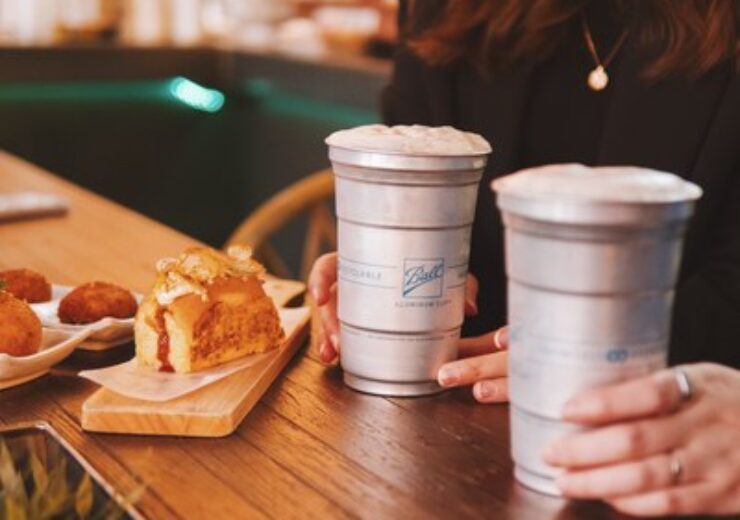Ball Aluminum Cup is expected to serve as a sustainable alternative for packaging across the sports and entertainment, food service, retail and beverage industries

The cups are infinitely recyclable and economically valuable. (Credit: Ball Corporation)
Recyclable aluminium packaging producer Ball Corporation and aluminium recycler and supplier Novelis announced that 90% of the new Ball Aluminum Cup is now made from recycled content.
US-based Ball said the cup has infinite recyclability due to its lower carbon footprint.
Ball Aluminum Cup is expected to serve as a sustainable alternative for packaging across the sports and entertainment, food service, retail and beverage industries.
The presence of 90% recycled content with a low carbon footprint requires 95% less energy than using primary aluminium.
Recently, Ball was also awarded Cradle to Cradle Certified Bronze for the aluminium cup, demonstrating the company’s dedication to creating goods that are safe, circular and sustainable.
The aluminium cup, created in Rome, Georgia, is lightweight, durable, and cool to the touch and offers an enhanced drinking experience.
Ball said that aluminium beverage packaging has eliminated around 350,000 single-use plastic cups and bottles at Ball Arena in Denver. With this, the venue is on track to eliminate more than one million single-use plastic cups and bottles this year.
Ball president and CEO Dan Fisher said: “At Ball, we’re committed to innovative solutions that contribute to creating a truly circular economy.
“Aluminium beverage packaging – including the Ball Aluminum Cup – has always been a sustainable alternative to plastic, and this update only further strengthens its sustainability attributes.
“We aim to deliver solutions that not only benefit our global customers but also benefit the planet, and we are excited to partner with Novelis to bring a Ball Aluminum Cup made with 90% recycled content to communities everywhere.”
